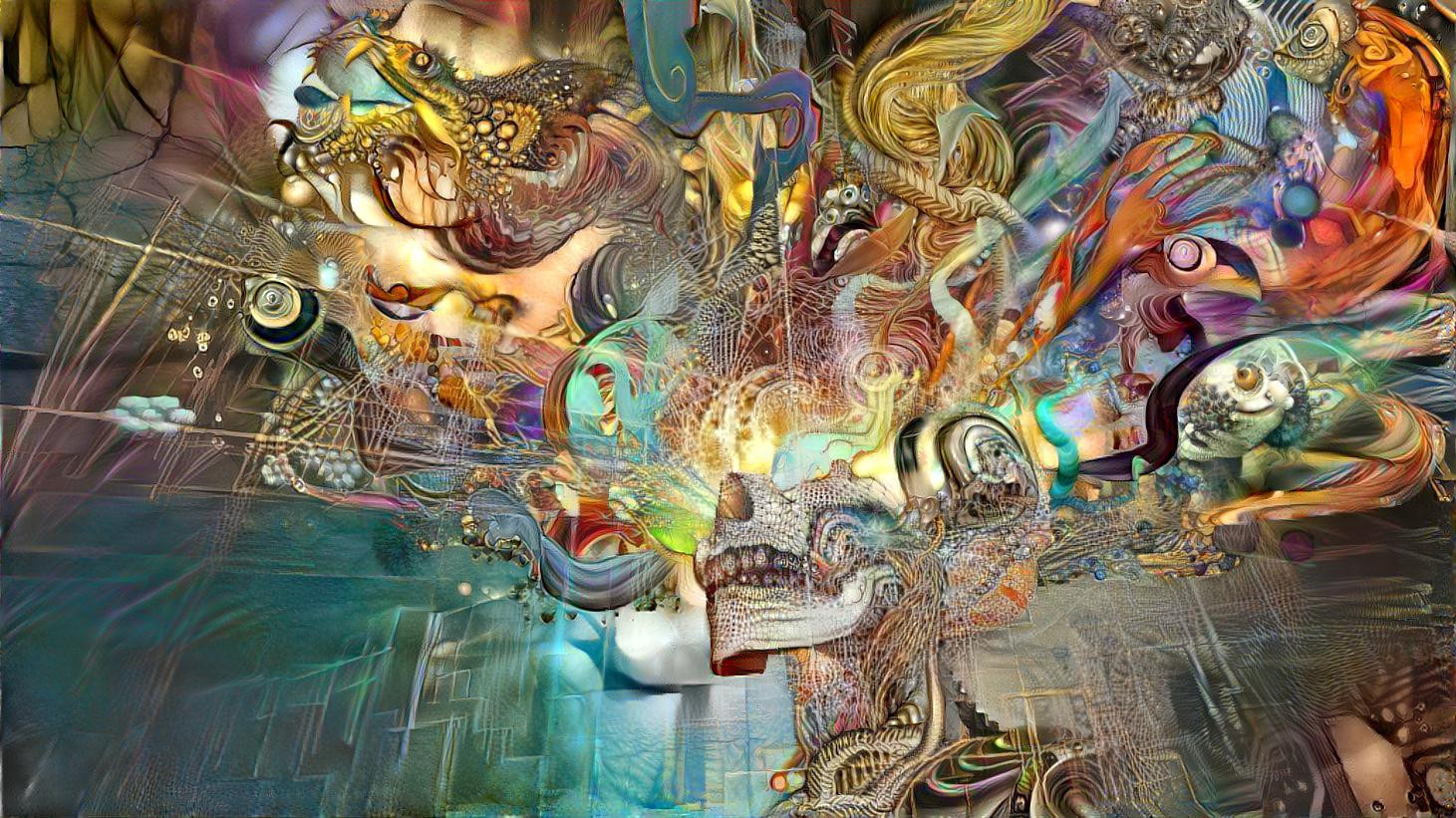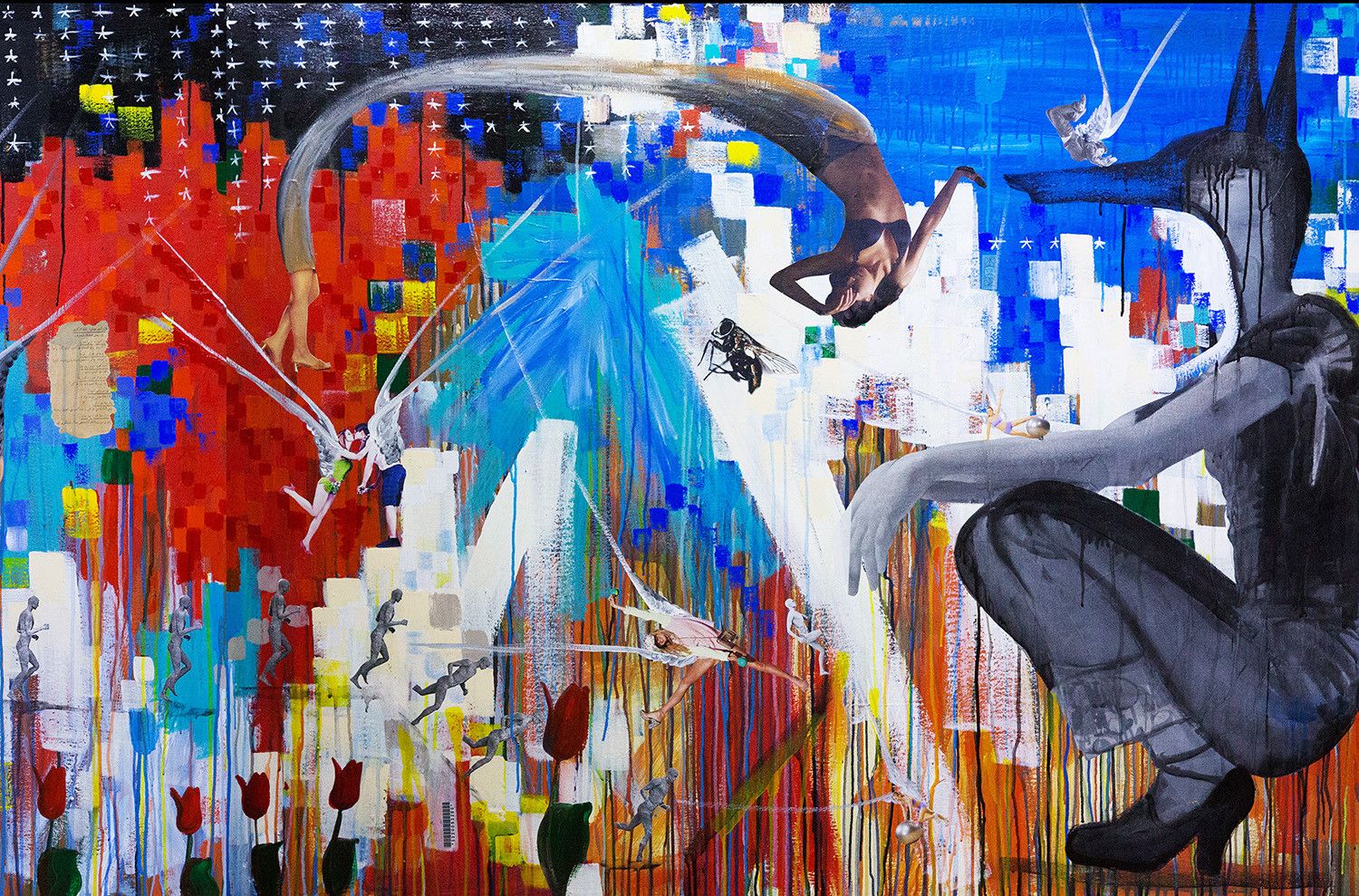When thought is allowed to take control then it sets us an impossible task – it drives us ever onward in the doomed attempt to accomplish something that can never be accomplished. It drives us on and on and it gives us no rest until we succeed at ‘doing this thing that we can never do’. This situation is the price we pay for being unwise enough to let thought take the driving seat.
When we set thought the task then when the task is completed we straightaway let go of it and if it so happens that the task can’t – for whatever reason – be completely then we still let go of it. We move on – we move on because we are free to move on. The task is only the task, after all; it has only relative importance and so we’re not ‘tied to it’.
We still ‘solve tasks’ in everyday life and then ‘move on’, apparently quite freely (for the most part) when thought is in control but there is a crucial difference. The ‘crucial difference’ is that there is always a secret agenda, there is always a plan in the background that is not being spoken about. The ‘plan’ or ‘agenda’ is – very simply – to shut down all uncertainty.
The ultimate agenda of thought that is always to shut down uncertainty – that’s how it works. Thought is an engine for shutting down uncertainty. When the thinking mind ‘presses for a conclusion’ then – no matter what the specifics relating to that projected conclusion might be – goal-orientated activity always comes down to ‘eradicating uncertainty’. If the uncertainty in the picture is not eliminated then the conclusion has not yet been reached, the goal has not yet been attained, the definitive answer that we are looking for has not yet been arrived at, etc.
As far as thought is concerned, ‘uncertainty’ means one thing and one thing only – it means that the goal (whatever it is) has not yet been reached. The goal has only been reached when there is zero uncertainty and so uncertainty is ‘the obstacle that absolutely needs to be overcome’. The ‘rule’ has not yet been obeyed; the machine has not yet not yet achieved what it has been designed (or instructed) to achieve…
It could be said that this is all just so much hot air because everyone knows perfectly well that attaining the goal or reaching a satisfactory conclusion always involves ‘eradicating error’, and that uncertainty in this case is always going to be synonymous with ‘error’. Achieving a task always means out-ruling any chance that the task might not have been achieved, so what are we really saying here?
The point is this, however – when we are talking about specific tasks, pragmatic tasks that are undertaken for their own sake (such as making a cup of tea or heating up baked beans in a saucepan, for example) then this is absolutely fine. This is ‘as it should be’. But when thought has taken over the running of the whole show then – as we have said – there is always a secret agenda. There is always an ultimate (if unspoken goal) goal and that ultimate goal is to get rid of all uncertainty. That is simply how thought works.
What this saying here is very simple therefore – when thought ‘takes control’ then the whole of life itself gets turned into a task and the resolution of that task necessarily involves the elimination of all uncertainty. The correct resolution means the utter eradication of all ‘risk’ in life. As soon as we say this because then everything starts to become clear – this attitude of ‘wanting to eliminate all risk from life’ is one that is very familiar indeed to us, after all. We all know that mind-frame – we call it ‘anxiety!
In anxiety there is always this hurry to complete all tasks, often a terrible hurry – an unholy hurry. We can’t wait to get the tasks ‘done and dusted’; we can’t wait to ‘tick them off the list’. There is a brisk and sterile efficiency to everything we do. Why is this? Simply because – on an unconscious or unexamined level – each task or job that we complete brings a little bit closer to the ultimate goal of ‘eradicating all outstanding jobs’. Each job that is completed brings us that bit closer to the ultimate goal, each goal that is attained brings us that little bit closer to eradicating all uncertainty in life.
When we are in this frame of mind then we are ‘rushing through life’ – we’re like a monomaniac train running along its tracks. Everything we do is only a means to an end and that and the ‘end’ in question isn’t something that we ever stop to think about. We just know that we have to get there; we just know that we want to get there – and as soon as possible, too! Every goal that we tackle becomes merely a means to an end. No goal is tackled for its own sake. Every goal stands for (or is ‘a surrogate for’) the ultimate goal (only the ultimate goal really matters, after all). Every task – for the anxious mind – is the same task.
Every task is the same task in anxiety; every problem is the same problem. Life challenges come in lots and lots of different guises but to the anxious mind they always represent the very same thing. To the anxious mind all problems are really the same problem and this is a problem of ‘eradicating all risk’. This is why little challenges, little obstacles or tasks loom so very large in anxiety and become so utterly overwhelming. They become overwhelming because each ‘problem’ we encounter secretly represents the big problem, the big problem of ‘eliminating every last bit of uncertainty’.
Thought sets us an impossible task, as we started off by saying. To get rid of uncertainty per se is absolutely impossible, fundamentally impossible, but the snag is that thought itself is utterly incapable of ever seeing this. Thought has no capacity to understand this. To thought, all tasks are the same. More to the point, to thought everything is a task. Thought is ‘a machine for solving problems’ and so – for it – everything it comes across is ‘a problem to be solved’, including life.
When we find ourselves rushing through life, disregarding the present moment, disregarding all the steps along the way, then this is because we are chasing that ultimate illusory goal’, which is the goal of ‘solving life’. When we finally get there then everything will be so wonderful, we think. When we finally ‘hit the big jackpot’ then all our struggles will have been worthwhile – ‘the end will have justified the means’, as it is said. The only trouble (the only fly in the ointment) being that the end DOSN’T justify the means. The end doesn’t justify the means because there is no end. The end is an illusion.
When thought takes control than life gets turned into a futile treadmill therefore, and we all know this particular ‘futile treadmill’ very well. We know it very well indeed – our modern world is just such a futile treadmill. Our modern world is the latest and greatest version of ‘the futile treadmill of thought’ and thus – because it is so all-pervasive – there seems to be no escape from. The treadmill isn’t just on the ‘inside of us’ (as the anxious mind) is on the outside as well (as society). Where are we to turn, therefore? It’s a treadmill where ever we look. There’s no freedom wherever we look.
Our absolute refusal to question the thinking mind means that we have zero chance of ‘getting off the treadmill’. We claim as a culture to be ‘treating anxiety’, we claim to be ‘trying to get to the bottom of it’, but this is a complete joke. What we’re really doing is ‘adding fuel to the fire’. What we’re really doing is getting the treadmill to spin ever faster. ‘Getting the treadmill to spin ever faster’ by coming up with more and more goals, more and more strategies, is our answer to everything!
Thought is only good for ‘small jobs’. The success of thought in smaller (or ‘bounded’) tasks is what spurs us on to believe that it can succeed equally well for the big jobs, the big job of resolving our existential situation, for example. Thought gets to subsume everything therefore and we are more than happy to hand over the job to it, which is like giving a glorified can-opener the job of determining ‘who we are and what we should be doing in life,’ or telling us what life is actually all about. That’s not thought’s job at all and it is astonishingly irresponsible of us to hand it over in this way!
Thought has this ‘peculiarity’ (this ‘necessary’ peculiarity) of being implacably averse to uncertainty. Thought’s essential modus operandi is to take uncertainty as being the ultimate enemy, the ultimate ‘bad guy’. This – in a strictly ‘provisional’ sense – is perfectly true for little jobs, as we have said. It isn’t true on a bigger scale however. It isn’t true on the bigger scale of things because radical or irreducible uncertainty is the ultimate nature of reality itself! Do we really want to spend our lives fighting reality? Do we really understand what taking on this fight means for us? Do we really want this for ourselves?
Either we are stuck on the treadmill, forever hoping for a resolution that never comes (and utterly wasting our lives in the process) or – if the anxiety really takes hold – we become overwhelmed, we become paralysed by the fear of life itself. Life itself is not the enemy however; we ourselves are life so how can life be the enemy? Life isn’t the enemy of life. Life is only the enemy of the thinking mind, when that mind has been allowed to ‘run away with itself’. Life is the enemy of thought because it can never be fitted into thought’s neat and tidy compartments; life is the enemy of the bureaucratic thinking mind because it can never be controlled.







Sandeep Jawalkar
Loved this piece, Nick!!
Was reminded of Alan Watts’, Wisdom of insecurity.
I remember while reading Eckhart Tolle I had this moment that life is not separate from who we are. When we meet our friends, we ask so how’s life?? As though there s a person and life is what’s around them.
And like you said we are life itself! If anything, life always takes takes care of itself. But different from “our” ideas of care.
And who in fact can be a threat to it if it’s only life all around.
Like that line from the scriptures that says that it’s only from the idea of a second that fear sets in.
Thank you once again for this lovely reminder!
Nick Williams
Thanks Sandeep! The Wisdom of Insecurity is a great book.